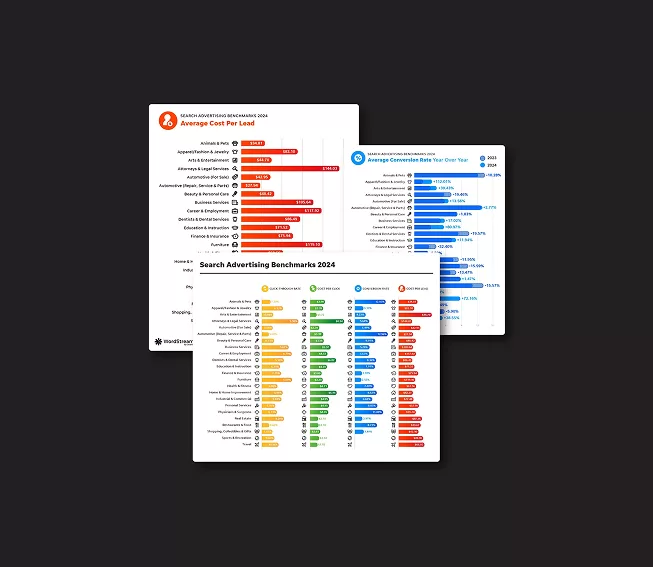When I graduated from college in 2005, I’d ballooned to over 215 pounds. College life caught up to me and it showed. Between excessive partying, a ton of poor lifestyle choices, and my dorm room’s all-you-can-eat meal plan, it’s no wonder why I gained so much weight.
I hated the way I looked and felt about myself. The pain spurred me into action and I began researching how to lose weight. My search led me to a program called P90X, an extreme 90 day home workout and nutrition program. The program was six days of exercise (each day focusing on a different muscle group) and one day of rest. This would take a Herculean effort on my part to complete this program.
Nevertheless, I was determined to lose weight and followed the program meticulously. The first two weeks were the hardest. It took all my willpower just to show up for each workout. By week three I’d fallen into a rhythm. By week four, I was on autopilot. What I didn’t realize was happening was that I was turning exercise into a habit. After 90 days, I’d lost 10 pounds! 15 years later, I’ve kept the habit of exercise and now weigh 167 pounds.

What’s the lesson?
Change your habits, change your life.
This applies to work just as much as it applies to exercise or eating healthier. Good work habits go beyond being on time or being organized. The best work habits take time to cultivate and relate as much to your attitude as they do to your work ethic. Here, I’ll share three of the best work habits you need to advance your career and become a better leader and employee.
Good work habit #1: Do more than what’s required of you
If you’re reading an article about how to find and create good work habits, I suspect you are wanting more of something. More money? More stability? More advancement? More recognition? More productivity? More out of your career? Whatever it is you’re seeking, you hope to get more of it by developing good work habits.
Sound about right?
The secret to getting more is doing more. Do not dismiss this as a platitude.

Let me explain. From 2012 to 2019, I oversaw hiring for a high-profile mobile development firm. Every summer, we had droves of applicants for software engineering internships for which we normally only had around six openings. When you look at resumes all day long, they start to look the same.
Most applicants were computer science majors their freshman through senior year, and all were “proficient in C++.” To be fair, our early internship job descriptions were vague and the minimum requirement was to be a “currently enrolled CS major.” But this actually further demonstrates the point! All internship applicants were technically qualified, but who did we end up hiring? The applicants who could demonstrate their work outside of their resume. It’s one thing to claim you can write code, it’s another thing to show your apps in the app store.
We hired the intern applicants who did more than what was required of them. When you find software engineering intern applicants who tinker with code outside of the classroom, they are generally the more curious and passionate ones. By doing more than what was required of them, these applicants were able to convincingly demonstrate to us their competence, character, initiative, work ethic, interest, and passion without ever having to say a word.
In any field of work, by doing more than what’s required, you develop competence, gain mastery, and attract attention in the right way. Whatever line of work you are in, develop the habit of doing more than what’s required of you.

Now, I’m not saying that you should take on more and more work with no hope for reward or recognition (or a raise!). But, I am saying that it’s important to look for professional development opportunities, ways to learn more about your field, and times to show some out-of-the-box thinking to help you really stand out and advance your career. It’s less about taking on work just to take it on and more about demonstrating your willingness to learn and grow.
Good work habit #2: Build trust and keep your commitments
Trust is currency in business. Trust creates speed, improves quality, promotes advancement, improves effectiveness, facilitates collaboration, and brings forth opportunities.
The simplest yet most impactful way to build trust with your boss, peers, or direct reports is by always keeping your commitments.
In my last recruiting job, I made over 400 job offers within a 7-year period. More than 50% of these offers were sourced from employee referrals. Why do you think that is? In hiring, the challenge is trying to accurately gauge a candidate’s qualifications and personality fit within a finite set of meetings and a fairly short time frame. In other words, it’s hard to trust someone when you haven’t known them for a while. Because of this, hiring can feel like a crapshoot. By leveraging the trust equity within a company and hiring through referrals, you improve the speed, quality, and effectiveness of the overall hiring process.
Let’s examine the business impact of trust within a recruiting function of a company. Specifically, we’ll look at the flow of trust and how each stakeholder (referrer, candidate, manager) benefits from hiring just one employee referral.
Imagine yourself from the perspective of each stakeholder:
Referrer: Because you had trust with the candidate, they took your recommendation to look at your company. As a result, you helped them find a new job and advance their career! Both your manager and referral are grateful to you for facilitating this transaction. There’s a tremendous amount of goodwill and trust that’s built when you help someone find a job. Who knows, you might even get a referral bonus!
Candidate: Because you had trust with the referrer, you were fast-tracked in the hiring process and were given a positive recommendation to the manager. Since you got the job, you’ve advanced your career and made the referrer look good at the same time!
Manager: Because you had trust with your employee (the referrer), they were willing to introduce you to candidates from their own personal network. Oftentimes, referrals are “passive candidates” (candidates who aren’t actively looking). Therefore, building trust with your employees can give you access to high-quality “hidden” pools of talent. Now that you’re fully staffed, your team can deliver on their objectives and meet company goals.

You see, regardless of your position within a company, it pays to build trust. Trust is built by consistently making and delivering on commitments over a period of time. As Reid Hoffman, founder of Linkedin said, “Trust equals consistency over time.”
Commitments can be something as simple as, “Sure, I’ll grab you a cup of coffee on my way into the office” to something as complex as “I commit to cutting costs by 25% by end of quarter.”
Whatever it is you say you will do, do it! Never make excuses and speak loudly through your actions.
Good work habit #3: Be humble
Humility is not just a virtue, it’s a competitive advantage. Humility is sometimes mistakenly associated with being shy or submissive. It means nothing of the sort! The word “humility” has a common origin with the word “humus.” What is humus? It’s fertile soil. What do you do with fertile soil? You grow things out of it.
Therefore, being humble is possessing a growth-oriented mindset and character and is a good workplace habit to work on. Humility allows you to see yourself as you are without self-deprecation nor self-exaggeration. To be humble is to be self-aware. From self-awareness, you gain clarity about your strengths, weaknesses, and opportunities for growth and advancement.
In Jim Collin’s bestselling book Good to Great, he and his team conducted an elaborate study to identify the universal distinguishing characteristics that cause a company to go from Good to Great.
Every “Good To Great” company had what is described as a “Level 5 Leader” during the pivotal transition years. According to their findings, “Level 5 leaders possess a paradoxical mix of personal humility and professional will.” Conversely, companies that had leaders with large personal egos added to the mediocrity–and in some cases all-out demise–of the company.

Here are some tips to help you develop and practice humility:
Surround yourself with people who are better and smarter than you
I don’t say this to be terse. I say this with the understanding that there are levels of mastery associated with every discipline and every industry. When you are around people who are far more advanced than you, it will become clear that there is a gap between where you are and where you can be. Intentionally surrounding yourself with “masters” creates a kind of self-imposed humility that forces you to become a student again.
Mentor people who are far less experienced than you
When you see things through the eyes of a beginner, you get a sense of “how far you’ve come,” which helps you appreciate even more the knowledge, skills, and experience you do have. To teach is to learn your subject from a “different angle.”

Seeing things from different angles allows you to gain hidden insights and create new connections which further expand your domain of knowledge. It is also quite humbling and rewarding to witness how your influence can positively affect the life of another.
Start the habit of journaling
If self-awareness is a desired outcome of humility, then journaling puts you on the fast track to clarity. In Julia Cameron’s The Artist’s Way, she prescribes a journaling practice referred to as “morning pages.”
In “morning pages,” you write three pages of anything that comes to mind without censoring your thoughts. Three pages of channeling the pure stream of consciousness from your mind, to pen, to paper. The goal is not to create art, but just to fill up three pages. You are not to share these pages with anyone. Don’t underestimate the seeming simplicity of this exercise. After just one session of morning pages, you may feel as if you had just “vacuumed the room of your own mind.”
When you get rid of the clutter in your head, you begin to see things more clearly. As Theodore Roethke said, “A mind too active is no mind at all.”
Develop good work habits
You can literally change your life by changing your habits. Changing your habits is in your control. Therefore, changing your life is in your control. By implementing these three good work habits, you will get the most out of your career and definitively grow as a leader. Make a commitment to yourself to develop these habits and get started today!






